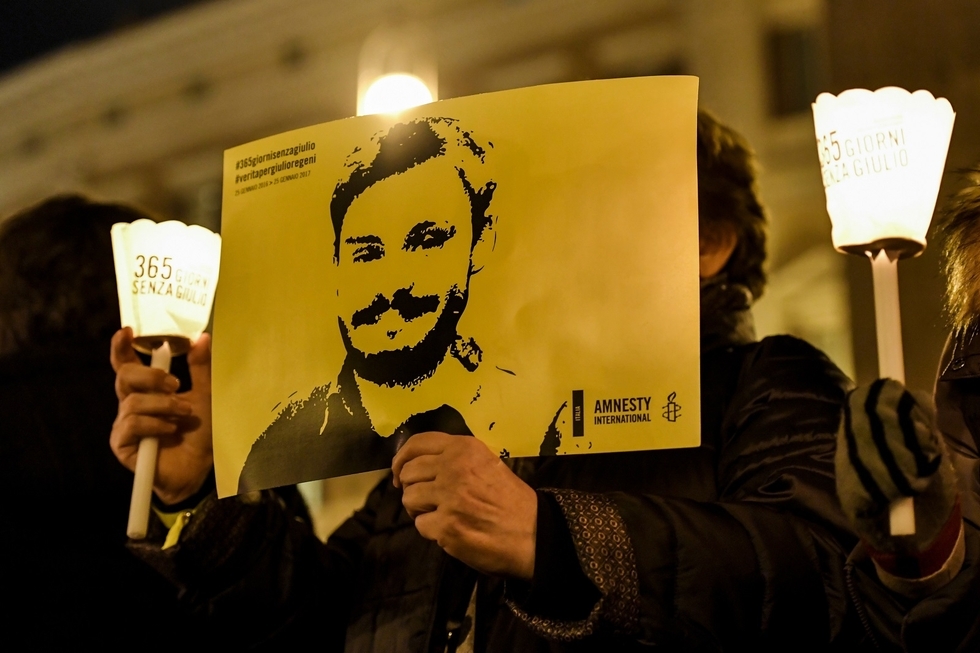Giulio Regeni: Italian prosecutor says student murdered for Cairo research

An Italian prosecutor said on Thursday that graduate student Giulio Regeni, who was kidnapped and murdered in Cairo two years ago, was killed because of his research into Egypt's independent labour unions.
On the second anniversary of his disappearance, Italy's main newspapers published an article written by Rome's chief prosecutor Giuseppe Pignatone summarising the results of a joint investigation with Egyptian authorities.
In the article, Pignatone also said Regeni had been the target of Egyptian surveillance up until the day he vanished.
Egyptian officials have repeatedly denied any involvement in Regeni's murder.
It is the first time that Pignatone has publicly discussed the results of the investigation. No one has been accused of Regeni's murder.
"The motive can be easily traced to Giulio's research activities during his months in Cairo," Pignatone wrote.
"What also has become clear is that Giulio had for months attracted the attention of Egypt's state apparatus, which continued in an increasingly pressing way until 25 January," Pignatone said, referring to the day he disappeared.
Regeni's disfigured body was found around a week later in a ditch outside Cairo.
The Italian had been researching Egypt's independent labour unions for a doctorate at Britain's Cambridge University.
Rome prosecutors this month seized the computer and mobile phone of his Cambridge tutor, Maha Abdelrahman. Pignatone said an initial examination of the material showed it was "useful".
Cambridge University has rejected any suggestion Abdelrahman might be implicated in his death.
The Regeni case has strained ties between Egypt and Italy, which recalled its ambassador over the case. Relations were restored in August when Rome said it would return its ambassador to Cairo and continue to search for Regeni's killers.
Italy has been criticised for its handling of Regeni's murder, and the student's family has called Rome's normalising ties with Cairo "dressed-up surrender".
Egyptian authorities have been accused by rights groups of systematically torturing prisoners, including political dissidents.
"The best way to honour Giulio Regeni’s memory is to pursue justice for his murder, and not to forget the Egyptians who share the same fate," Claudio Francavilla, Human Rights Watch EU advocacy associate, wrote last year.
Amnesty International has also drawn parallels between the murder of Regeni and human rights violations against Egyptians.
"Giulio’s terrible fate has been mirrored in countless other cases of enforced disappearance in Egypt," Shane Enright, Amnesty’s trade union campaigner said in a statement last year.
"We want accountability, an end to impunity, and an end to these dreadful cases of disappearance and torture in Egypt."
On Tuesday, UK and Egyptian officials signed an agreement allowing British universities to open branches in Egypt despite concerns about Regeni's death and wider human rights abuses.
The pact will give the UK higher education sector a "competitive advantage" in Egypt, a statement by the British Department of Education said.
Middle East Eye propose une couverture et une analyse indépendantes et incomparables du Moyen-Orient, de l’Afrique du Nord et d’autres régions du monde. Pour en savoir plus sur la reprise de ce contenu et les frais qui s’appliquent, veuillez remplir ce formulaire [en anglais]. Pour en savoir plus sur MEE, cliquez ici [en anglais].




